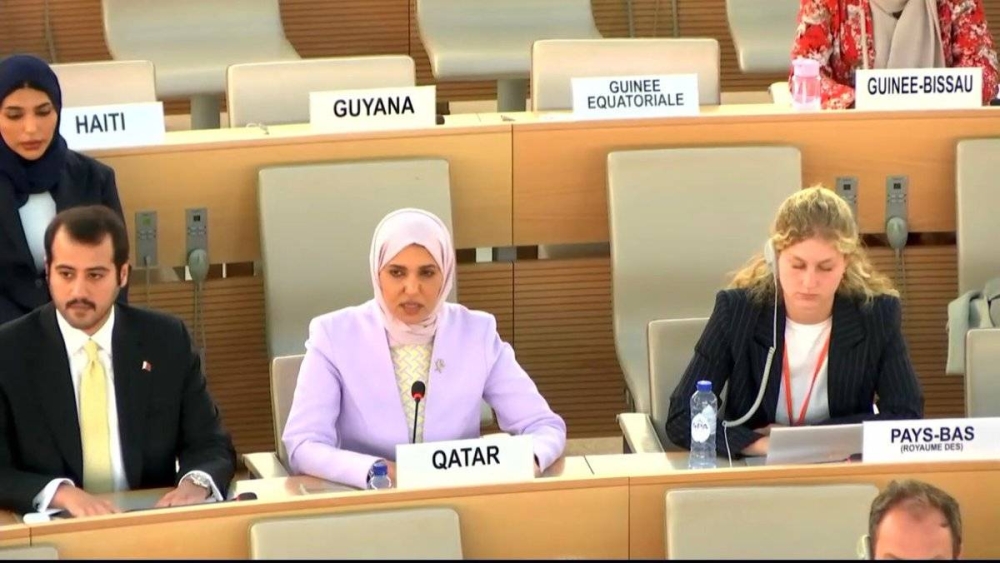
The Gulf Cooperation Council (GCC) states affirmed their firm commitment to eradicating contemporary forms of slavery, and acknowledged that forced or compulsory labor may amount to "contemporary forms of slavery."
The GCC states underscored their full committed to suppressing these practices based on the provisions of the Forced Labor Convention No. 29 of 1930, and the Abolition of Forced Labor Convention No. 105 of 1957, to which all GCC member states have acceded.
This came in a statement delivered by HE Permanent Representative of the State of Qatar to the United Nations Office in Geneva Dr. Hind Abdulrahman Al Muftah, on behalf of the GCC states, in the capacity of the State of Qatar as head of the Gulf Group, in an interactive dialogue on the Report of the Special Rapporteur on Contemporary Forms of Slavery, as part of the 57th session of the Human Rights Council.
The GCC states underscored that their national guarantees are consistent with these obligations and that they are designed to ensure full compliance with international obligations.
They reiterated that the effective implementation of these international principles must take into account the legal, economic and cultural contexts specific to each country, in order to ensure the achievement of the desired objectives while respecting national circumstances and capabilities.
The GCC states said that, while they are convinced that discussions of labor issues traditionally take place in specialized forums, they remain committed to discussing their intersection with human rights, reaffirm their full commitment to protecting the rights of all individuals, including detainees, and continue to strengthen national legal frameworks to reflect this commitment.
